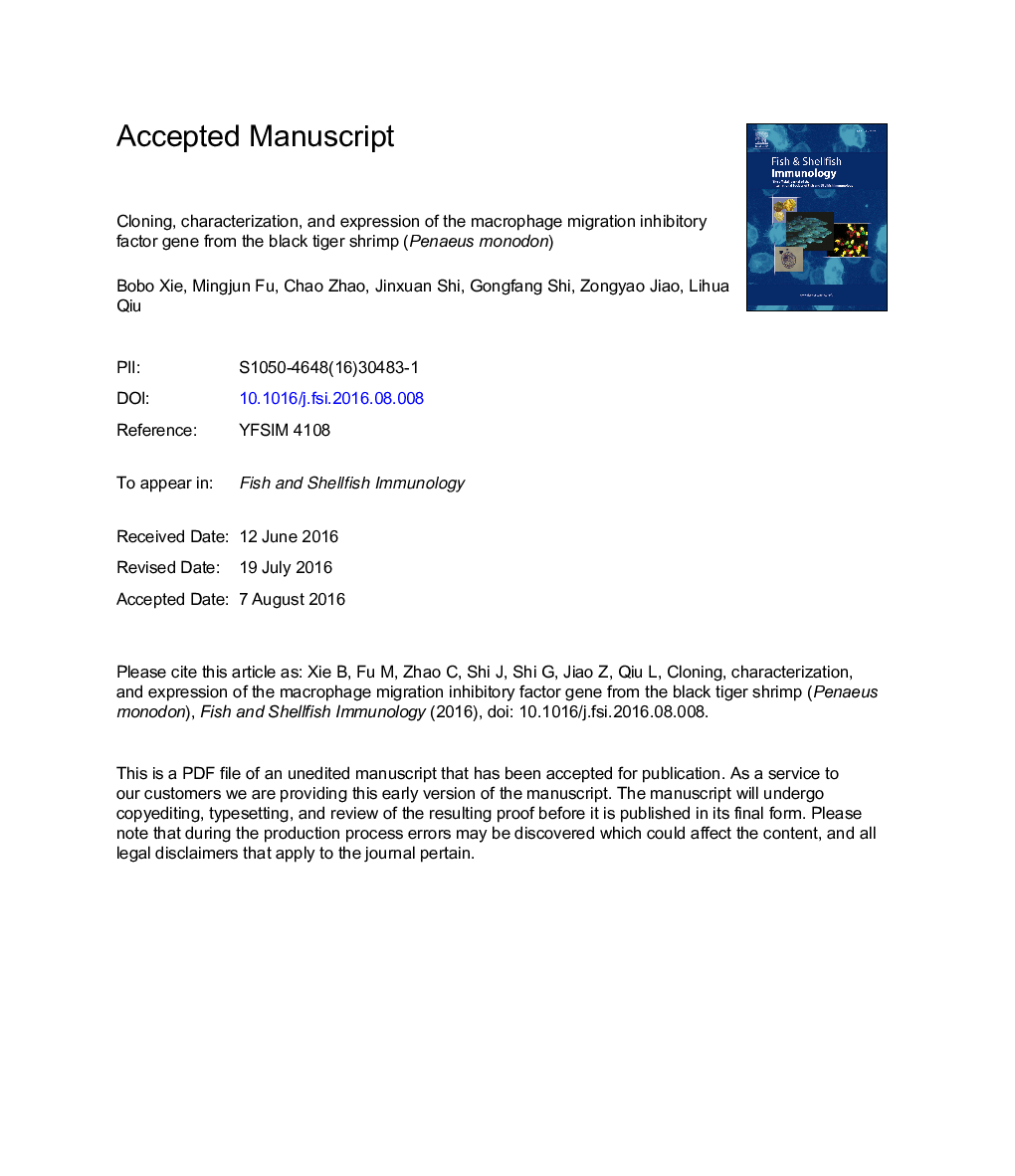| Article ID | Journal | Published Year | Pages | File Type |
|---|---|---|---|---|
| 8499136 | Fish & Shellfish Immunology | 2016 | 27 Pages |
Abstract
Macrophage migration inhibitory factor (MIF) is an ancient cytokine that engages in innate immune system of vertebrates and invertebrates. In this study, the MIF gene homologue (PmMIF) was cloned from the black tiger shrimp, Penaeus monodon. The full-length cDNA sequence of PmMIF was 838Â bp and contained 78Â bp 5â² untranslated region (UTR) and 397Â bp 3â² UTR, and an open reading frame (ORF) of 363Â bp which coded 120 amino acids (aa). Multiple alignment analysis showed that the deduced amino acid sequence shared 98% identities with MIF from closely related species of Litopenaeus vannamei. Quantitative real-time PCR (qRT-PCR) analysis indicated that PmMIF was highly expression observed in hepatotpancreas and gills. After Vibrio harveyi challenge, PmMIF mRNA level in hepatopancreas and gills were sharply up-regulated at 6Â h post-injection, and reached the maximum at 12Â h. PmMIF expression level in the hepatopancreas and gills were up-regulated markedly under low (2.3%) and high (4.3%) salinity exposure, respectively. PmMIF expression level in gills increased significantly at 12Â h and reached peak values (2.5- fold, 6.4-fold and 1.8-fold compared with the control) at 12Â h, 48Â h and 12Â h after zinc, cadmium and copper exposure, respectively. In the hepatopancreas, the expression of PmMIF reached maximum levels (8.5- fold, 6.2-fold and 2.1-fold compared with the control) at 24Â h, 6Â h and 48Â h after zinc, cadmium and copper exposure, respectively. All the results indicate that PmMIF plays an important role in responding in the innate immune system of shrimps.
Related Topics
Life Sciences
Agricultural and Biological Sciences
Aquatic Science
Authors
Bobo Xie, Mingjun Fu, Chao Zhao, Jinxuan Shi, Gongfang Shi, Zongyao Jiao, Lihua Qiu,
